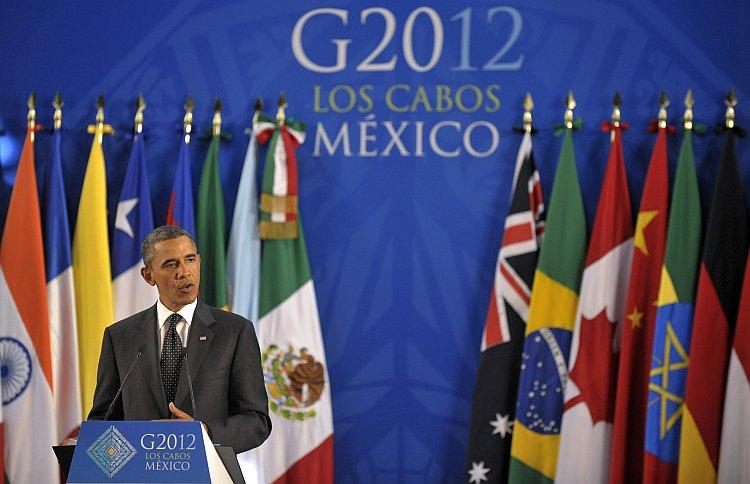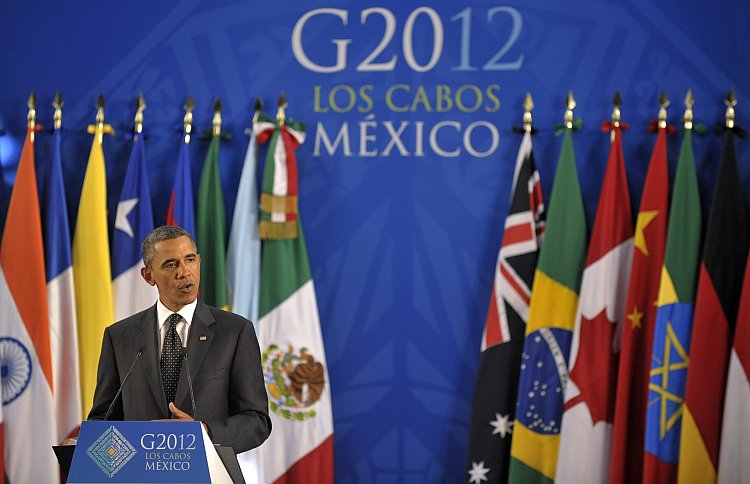The G-20 summit, dominated by a smoldering financial crisis in Europe, concluded with a decision to stimulate growth and downplay the previous strategy of austerity.
In the communiqué released at the end of the two-day meeting in Los Cabos, Mexico, the group’s European members pledged to improve the functioning of their financial markets and ensure that Greece (though still without a government) remains “on the path to reform.”
The European Investment Bank will look to stimulate the economy and bring down unemployment through targeted investment and competitiveness, the declaration says.
The measures adopted by the summit make it clear that the strict austerity process favored by German Chancellor Angela Merkel and France’s ex-President Nicholas Sarkozy was being replaced, marking a victory for new French President François Hollande, who had campaigned on a platform of stimulus measures in the short term.
Earlier in the meetings, European leaders had been criticized by other G-20 members for a lack of action in the eurozone crisis. Some criticized the EU for not tightening the belt enough.
“The countries in crisis will have to find measures that might be painful and politically unpopular in the short term, but nonetheless they must pursue this path,” South Korean President Lee Myung-bak said June 18.
European leaders hit back. EU countries had not come to the G-20 summit to “receive lessons in terms of democracy or in terms of how to handle the economy,” European Commission President Jose Manuel Barroso said June 18, remarking, “Not all members of the G-20 are open democracies.”
Barroso attempted to deflect blame onto the United States for Europe’s problems. “This crisis was originated in North America, and many of our financial sectors were contaminated by, how can I put it, unorthodox practices from some sectors of the financial market,” he said.
The final communiqué also singled out the United States’ warning that it must ensure “its public finances are placed on a sustainable long-run path so that a sharp fiscal contraction in 2013 is avoided.”
U.S. Treasury Secretary Timothy Geithner did not comment on the slights, and focused on the positives from the summit.
“We’re encouraged by what we’ve heard from the European leaders today and by the broad focus around the world. We’re seeing to the need to strengthen economic growth,” he said.
Geithner described the meeting of European leaders on June 28 and 29 as “a critical summit for them.”
Everyone has a stake in Europe’s success in resolving the crisis, he said, and the United States would continue to support that. However, ultimately, it was up to Europe to solve its own problems.
“A solution to this crisis in Europe has got to be made in Europe,” he said.
The Epoch Times publishes in 35 countries and in 19 languages. Subscribe to our e-newsletter.






